Education Center for Cancer Patients and Their Families: Colombian National Cancer Institute Experience
Keywords:
Education, outpatient treatment, neoplasmAbstract
Oncological treatment is focused primarily on the biological control of the disease. Responses to patients´ cognitive and emotional needs are, in general, satisfied under pressing time limits, paternalistic benefactor conditions and vertical relationships. The pharmaceutical industry has played an important role in cancer patient education; however, this clearly presents a conflict of interest. In order to meet the challenge of providing patient education, the National Cancer Institute (NCI) approved the creation of a communicative educational program. This article describes how a pedagogical proposal based upon the recognition of subjectivity, social interaction, autonomy, and empowerment was implemented. Over a 10-month period 1,200 patients participated; 48% of whom had only primary level education. The outcome included the satisfying of cognitive and emotional needs; overcoming the conspiracy of silence; promoting treatment adherence; deliberation about sexuality, amenorrhea and the risk of pregnancy in women undergoing treatment; informed consent as an opportunity for communication; and, orientation on how to access pertinent organizations. The education center offers support services which encourage self-awareness and empowerment, and brings together peers who are facing the uncertainties of cancer diagnosis and treatment. Communicative education reinforces and provides feedback on events that take place in a clinical setting.
Author Biographies
Carolina Wiesner, Instituto Nacional de Cancerología
Grupo Gestión y Planificación Programas de Prevención, Instituto Nacional de Cancerología, Bogotá D. C., Colombia
Centro de Educación a Pacientes, Instituto Nacional de Cancerología, Bogotá D. C., Colombia
Ana C. Contreras, Instituto Nacional de Cancerología
Centro de Educación a Pacientes, Instituto Nacional de Cancerología, Bogotá D. C., Colombia
Juliette Castro, Instituto Nacional de Cancerología
Centro de Educación a Pacientes, Instituto Nacional de Cancerología, Bogotá D. C., Colombia
References
Ferlay J, Shin HR, Bray F, et al. GLOBOCAN 2008, Cancer Incidence and Mortality Worldwide: IARC CancerBase No. 10 [internet]. Lyon, France: International Agency for Research on Cancer; 2010. [citado: 30 de noviembre del 2010]. Disponible en: http://globocan.iarc.fr.
MP King N. Consent and the courts: The emergence of legal doctrine. En: Faden RR, Beauchamp TL. A history and theory of informed consent. New York: Oxford University Press; 1986. p. 114-50.
Gracia D. La tradición jurídica y el criterio de la autonomía: los derechos del paciente. En: Fundamentos de Bioética. Madrid: Eudema; 1989. p. 155-65.
Härtera M, Simon D. Shared decision-making in diverse health care systems-translating research into practice. Patient Educ Couns. 2008;73:399-401.
https://doi.org/10.1016/j.pec.2008.09.004
Gruber W, Llewelyn J, Arras C, et al. The role of the pharmaceutical industry in promoting patient education. Patient Educ Couns. 1995;26:245-9.
https://doi.org/10.1016/0738-3991(95)00731-E
Anderson RM, Funnell MM. Patient empowerment: reflections on the challenge of fostering the adoption of a new paradigm. Patient Educ Couns. 2005;57:153-7.
https://doi.org/10.1016/j.pec.2004.05.008
Wiesner C, Cortés C, Nieto JM, et al. Modelo de comunicación educativa para el control del cáncer. Bogotá: Instituto Nacional de Cancerología; 2007.
Wiesner C, Cortés C, Donoso I. Guía para la Comunicación educativa en el marco del control del cáncer. Documento Técnico No 3. Bogotá: Instituto Nacional de Cancerología; 2007.
Bourdon S. Relaciones sociales y trayectorias biográficas: hacia un enfoque comprensivo de los modos de influencia. Revista Hispana para el Análisis de Redes Sociales [internet]. 2009;16(6):159-177.
https://doi.org/10.5565/rev/redes.368
Quinn B. Exploring nurses' experiences of supporting a cancer patient in their search for meaning. Eur J Oncol Nurs. 2003;7:164-71.
https://doi.org/10.1016/S1462-3889(03)00019-X
Reich M, Mekaoui L. [Conspiracy of silence in oncology: a situation not to be overlooked]. Bull Cancer. 2003;90:181-4.
Barbero J. [The patient's right to information: the art of communicating]. An Sist Sanit Navar. 2006;29 Suppl 3:19-27.
Monsalve L, Wiesner C, Restrepo MH, et al. El consentimiento informado en el Instituto Nacional de Cancerología. Rev Colomb Cancerol. 2009;13:8-21.
https://doi.org/10.1016/S0123-9015(09)70147-7
Instituto Nacional de Cancerología (Colombia). Grupo Políticas, Legislación y Movilización Social. Directorio de las fundaciones y organizaciones que trabajan por el control del cáncer en Colombia [internet]. [citado: 24 de diciembre del 2010]. Disponible en: http://focontrolcancer.blogspot.com.
Broom A. The eMale: Prostate cancer, masculinity and online support as a challenge to medical expertise. Journal of Sociology. 2005;4:87-104.
https://doi.org/10.1177/1440783305050965
Kreling B, Figueiredo MI, Sheppard VL, et al. A qualitative study of factors affecting chemotherapy use in older women with breast cancer: barriers, promoters, and implications for intervention. Psychooncology. 2006;15:1065-76.
https://doi.org/10.1002/pon.1042
Hodgkinson K, Butow P, Fuchs A, et al. Long-term survival from gynecologic cancer: psychosocial outcomes, supportive care needs and positive outcomes. Gynecol Oncol. 2007;104:381-9.
https://doi.org/10.1016/j.ygyno.2006.08.036
Zanchetta MS, Perreault M, Kaszap M, et al. Patterns in information strategies used by older men to understand and deal with prostate cancer: an application of the modelisation qualitative research design. Int J Nurs Stud. 2007;44:961-72.
https://doi.org/10.1016/j.ijnurstu.2006.03.018
Salander P. Bad news from the patient's perspective: an analysis of the written narratives of newly diagnosed cancer patients. Soc Sci Med. 2002;55:721-32.
https://doi.org/10.1016/S0277-9536(01)00198-8
Koropchak CM, Pollak KI, Arnold RM, et al. Studying communication in oncologist patient encounters: the SCOPE Trial. Palliat Med. 2006;20:813-9.
https://doi.org/10.1177/0269216306070657
Duffy C, Allen S. Medical and psychosocial aspects of fertility after cancer. Cancer J. 2009;15:27-33.
https://doi.org/10.1097/PPO.0b013e3181976602
Kagawa-Singer M, Wellisch DK.. Breast cancer patients' perceptions of their husbands' support in a cross-cultural context. Psychooncology. 2003;12:24-37.
https://doi.org/10.1002/pon.619
Wong,DK, Chow,SF. Beyond clinical trials and narratives: a participatory action research with cancer patient selfhelp groups. Patient Educ Couns. 2006;60:201-5.
https://doi.org/10.1016/j.pec.2004.11.016
McWilliam CL, Brown JB, Stewart M. Breast cancer patients' experiences of patient-doctor communication: a working relationship. Patient Educ Couns. 2000;39:191-204.
https://doi.org/10.1016/S0738-3991(99)00040-3
Boyle FM, Robinson E, Heinrich P, et al. Cancer: communicating in the team game. ANZ J Surg. 2004;74:477-81.
https://doi.org/10.1111/j.1445-1433.2004.03036.x
Nåden D, Sæteren B. Cancer patients' perception of being or not being confirmed. Nurs Ethics. 2006;13:222-35.
How to Cite
Downloads
Downloads
Issue
Section
License
Todos los derechos reservados.




